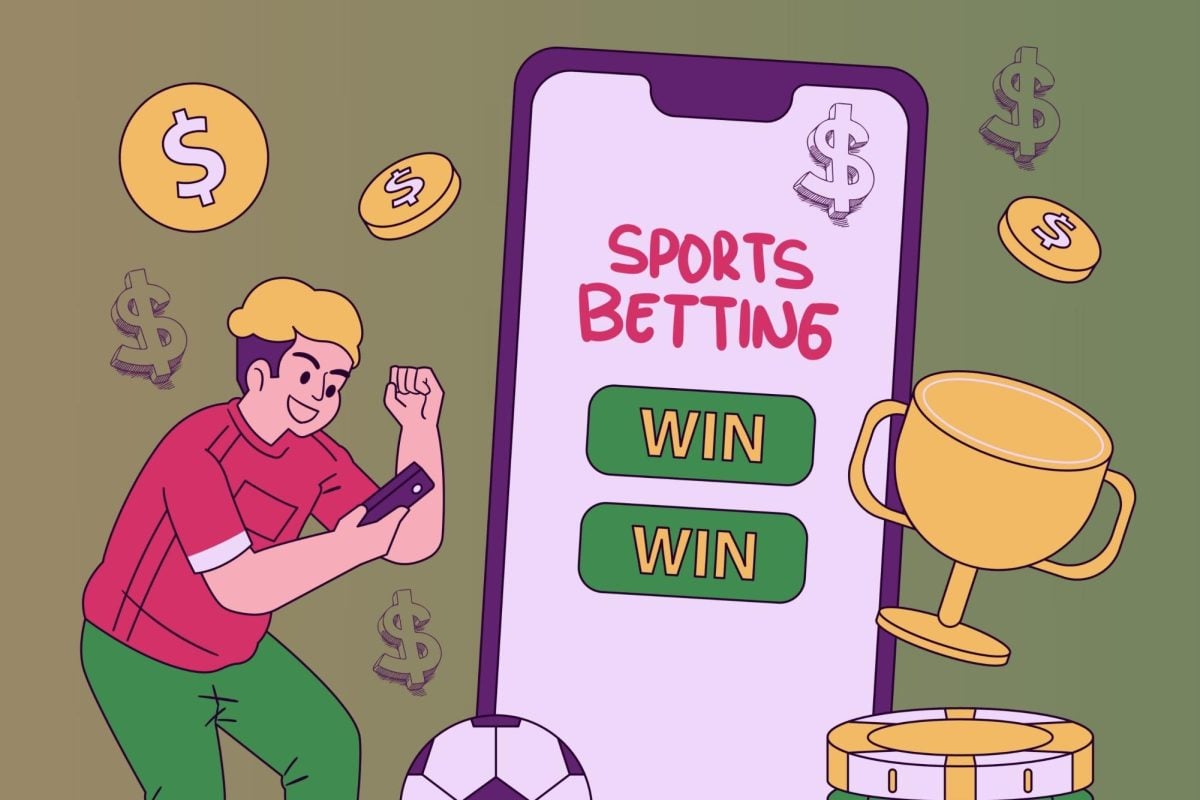On Super Bowl Sunday, McCormick freshman Aaron Kazi and six friends each chipped in $300 to bet on the Kansas City Chiefs. Much like quarterback Patrick Mahomes II and tight end Travis Kelce, Kazi and company struck gold against the San Francisco 49ers, ending the day with a $1,449 profit.
Kazi said he made about $500 in two weeks from sports betting, including the $207 spoils he garnered that night.
“It’s not consistent income, but it’s fun and makes (watching games) more interesting,” Kazi said.
Following federal legalization in 2018, sports betting has spiraled into a proverbial empire in the U.S. According to the American Gaming Association, national sports betting revenue grew from about $7.56 billion to $10.92 billion from 2022 to 2023, and Americans wagered about $119.84 billion on sports last year.
Sportsbook Review analysis freelancer Rob Paul said big events like March Madness and the Super Bowl typically cause bets to spike.
According to Statista, individuals aged 18 to 34 are most likely to engage in sports betting. Although the legal age for sports betting in most states is 21, many underage college students engage in sports betting through Fliff. A “social sportsbook,” Fliff allows users 18 and older to create parlays — sets of bets — with Fliff Coins to win Fliff Cash. Fliff Cash can be bought and redeemed with real money.
The popularity of sports betting among underage students raises questions about young adults becoming addicted to gambling. According to psychology Prof. Benjamin Gorvine, adolescents are more likely than adults to be impulsive and engage in poor decision-making.
Gorvine compared the dangers of sports betting to those of video games, as both give “short-term, tangible rewards” at the risk of long-term costs.
“(Sportsbook apps) are explicitly designed to evoke all the same things that get evoked when you play a video game,” Gorvine said. “It removes you from the reality that you are gambling.”
Fliff reinforces this concept through head-to-head competition to collect the most Fliff Coins, ranking users on a Fliff Coin leaderboard.
Many sports betting websites share expert picks to help bettors.
“If it’s not my favorite team playing, then I’m watching to see who’s winning,” McCormick freshman Nathan Miller said. “I care about what happens because I have skin in the game.”
Paul said betting based on team preferences or gut feelings “doesn’t make any sense” in the long run and bets “need to be backed up by numbers.”
Kazi said he usually researches statistics and odds before making a parlay, but he sometimes bets with his gut and loses.
“It’s a hard code to crack,” Kazi said. “I lose most of my money when I go with my heart and put money down with my favorite team.”
Paul said although he sticks to placing bets on games he researches and writes about, he only wins about half of the time.
“You have to be responsible with your money,” he said. “You have to understand why you’re betting on something, and that too much of anything can be bad.”
Email: mayawong2027@u.northwestern.edu
Related Stories:
— NU students gather to snack, shout and swoon at Super Bowl watch parties on campus







